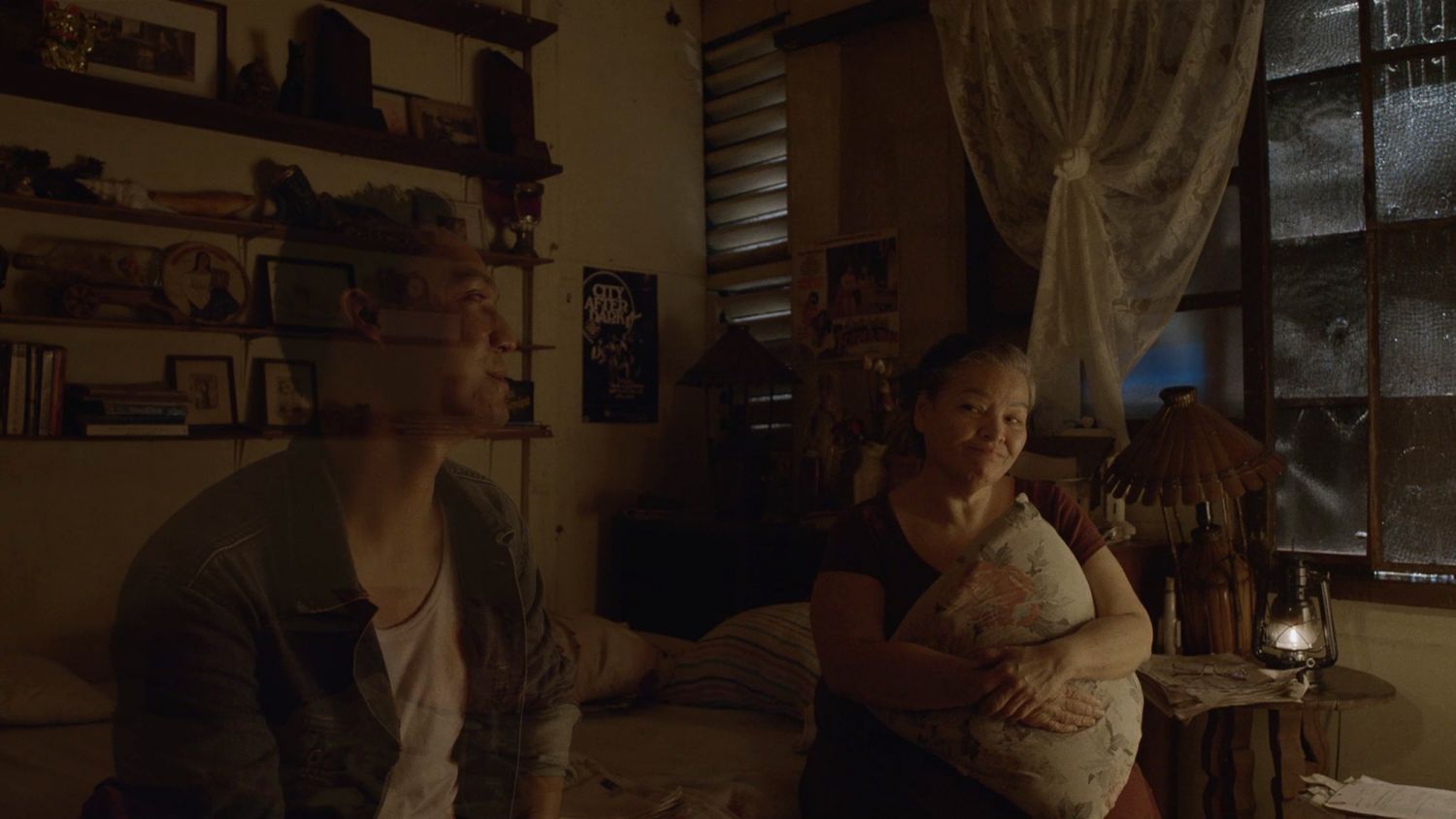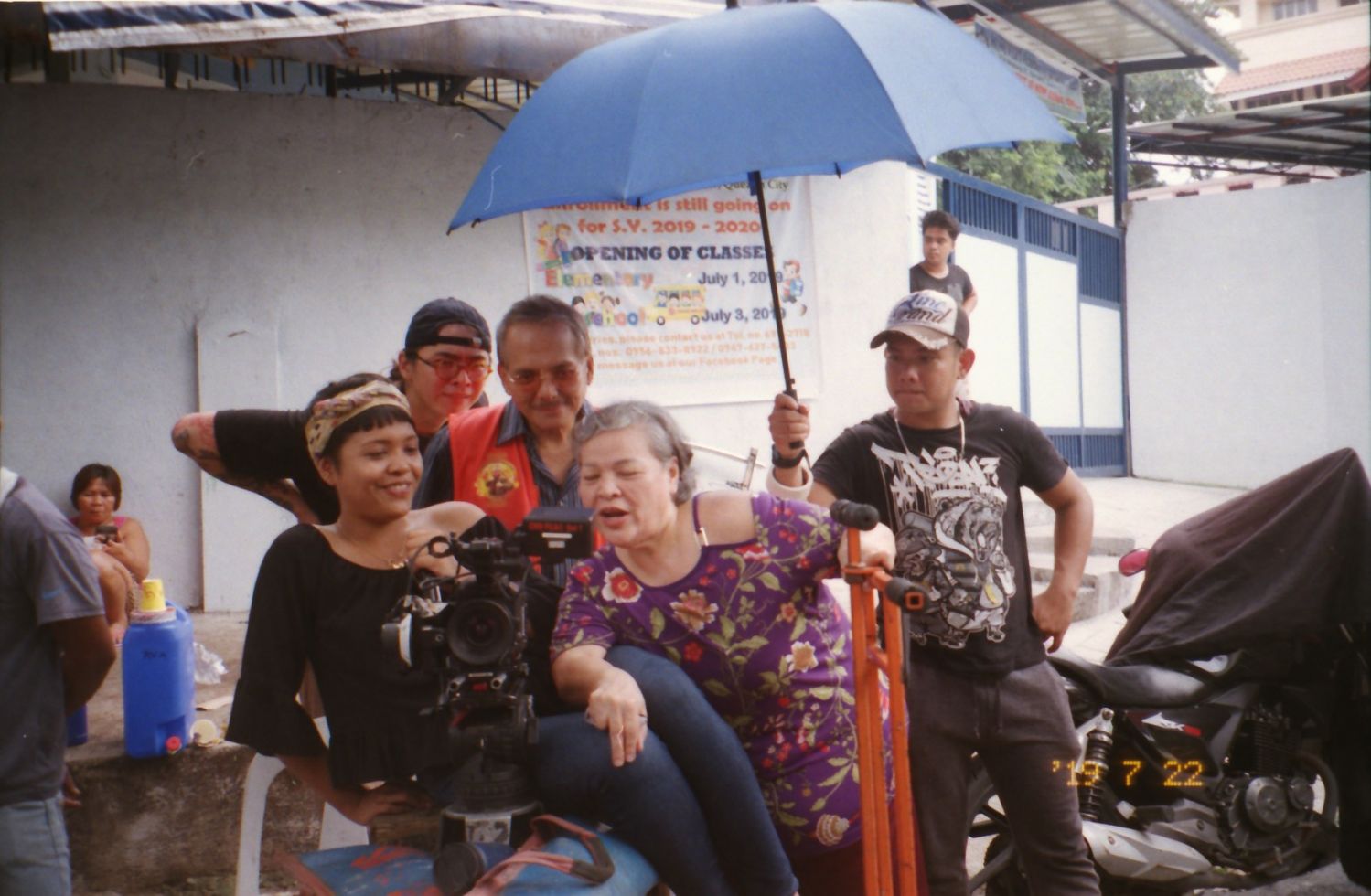Making history as the second Filipino-produced-and-directed film to enter the World Cinema Dramatic competition of the prestigious Sundance Film Festival, Martika Ramirez Escobar's Leonor Will Never Die is a love letter to the entire filmmaking industry, to life, and our pursuit for a satisfying ending.
Last January 29, the 2022 Sundance Film Festival's awards have been announced. The Special Jury Award: Innovative Spirit for the World Cinema Dramatic competition was presented for Leonor Will Never Die, written and directed by Martika Ramirez Escobar.
Martika Ramirez Escobar has nothing on her sleeve but a passion for cinema, faith in it, and the wonders it brings. As a kid, she grew up watching blockbuster films, box-office hits, and Hollywood's tired format which most major Filipino film studios have adapted. It was in high school when her desire to be a filmmaker one day grew in her after being enamoured by the music videos she digests on television.
Filmmakers Quark Henares and RA Rivera were just some of her heroes then. So after knowing that Rivera studied at the UP Film Institute, she followed in his footsteps. In college, her understanding of cinema has changed, or to be exact, widened. She witnessed how the local film industry radically changed in the late 2000s, with the independent cinema industry bringing home awards and recognitions from international award-giving bodies and film festivals. She realised how dynamic the film can be and how her own directorial decisions—though it might appeal to a small niche market—can be powerful enough to emotionally connect to the audience. All it takes is trust from her team, her producers, and herself to make it possible to put it on the screen.
In Case You Missed It: Quark Henares on 'On The Job' and Chatting With Bong Joon-ho at the Venice Film Fest
Working as a camera operator for Henares today at Globe Studios, Escobar entered the Cinemalaya Film Festival's Shorts program two times: in 2014 with Pusong Bato and again in 2020 with Living Things, from which she won Best Director. Submitting her eight-years-in-the-making film Leonor Will Never Die (LWND) to the Sundance was just a spur-of-the-moment thing she said as she just saw the notice of approaching deadlines on the FilmFreeway website.
As faith would have it, her film was selected and put against the equally wonderful works of Jim Archer (Young Director Awards winner in Cannes), László Csuja (jury prize winner at the Karlovy Vary International Film Festival), and Maryna Er Gorbach (European Film Academy member), to name a few. For Escobar, making it to the Sundance is unbelievable enough and she wishes nothing but for her film to be accepted by critics and audiences for what it is, what it talks about, and what it asks from us.
In case you missed it: Producer Quark Henares on ‘On The Job’, Chatting with Bong Joon-ho, and the Venice Film Fest

How did the concept for Leonor Will Never Die begin?
Martika Ramirez Escobar (MRE): When I was [attending] classes at Mowelfund, we had teachers and lecturers who would come to class wearing outfits that looked like straight out of Filipino action films that were prevalent in the Seventies and Eighties. My friend and I thought what is it about that genre and period that made these filmmakers imbibe its 'spirit' in their daily lives. Also, it's not the only manifestation of a film affecting our waking lives—our spectrum of emotions expands as we watch more films throughout our lives.
LWND is about a retired filmmaker who got transported to the film she was writing. It was her last film and in the process, she was revising her life through the film. It lets us look at life as one big film, with beginning, middle, and end. We rewrite our lives daily through our decisions, our relationships with people, etc.
I also made it a strong aged female character because out of all the action films that we have in our local cinema, there is no such thing as an "action lola".
Why did it take eight years to finish?
MRE: It's basically due to my slow-paced writing process. I am really not a writer, so that's what happened. But I am happy with the journey it took. I knew many things along the way and the film grew along with me, my understanding of life and the world. We started filming in 2019 and during post-production, I suddenly realised that there is something wrong with the ending, that it lacked something.
Read also: Filipino Filmmaking Has Unlimited Potential, Says Brillante Mendoza







